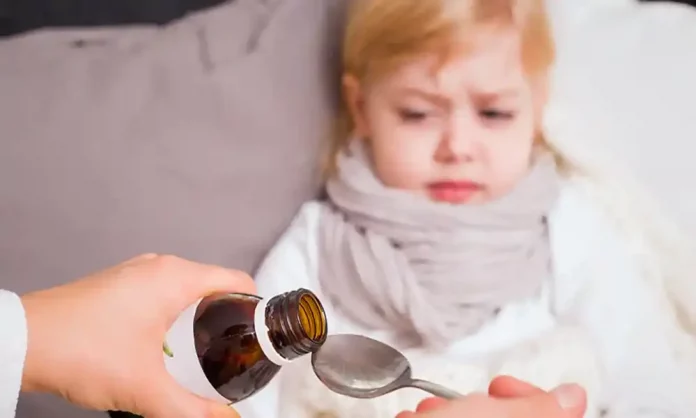Coughs are a typical cold symptom that aids the body in protecting the lungs by clearing mucus from the airways. Drinking plenty of fluids, especially warm beverages to relax the throat, is one of the non-drug remedies for coughs. Meanwhile, cough syrups are often used to treat the cold.
Some cough and cold medications can also have harmful side effects, like breathing slowing, which can be fatal, especially in newborns and young children. Due to these factors, giving cough syrups to children has become a topic of debate and it’s critical to understand when your child requires medication, the best course of therapy, and when to forego medication.
Why Cough Syrups Are Avoided?
Cough syrups contain dextromethorphan (DXM) – an ingredient in many over-the-counter (OTC) cough and cold medicines. DXM causes hallucinations and out-of-body sensations similar to the ones caused by drugs like ketamine and PCP. Meanwhile, other active ingredients in the syrup include cough suppressants (dampening the body’s cough reflex), expectorants, and mucolytics (both of which help clear phlegm).

Read More: Is Snoring Bad For Your Brain Health?
Another major ingredient that poses a greater risk to children is the presence of sedatives in cough syrups. Even though sedation may be a desired outcome for parents of a restless kid, young children are especially vulnerable to serious injury or even death. Hyperactivity and agitation are other side effects of sedatives.
Overdosing on cough syrups is another major risk factor. Parents who misunderstand the label, those who purposefully use more in the hopes that it would work better. Unintentional overdoses and the use of imprecise measuring tools like household spoons can all lead to overuse. Adverse events associated with over dosage of cough syrups include agitation and psychosis.
Our study, which was just published in the Medical Journal of Australia, demonstrates that limiting children’s access to cough and cold medications reduces poisonings significantly and sustainably.
Another research focused on dosing errors, adverse reactions to the right doses, and unintentional “exploratory ingestions,” such as when a young child helps themselves to the medicine.
Read More: Mental Health Awareness – Still A Stigma In Pakistan?
Stay tuned to Brandsynario for the latest news and updates.










































